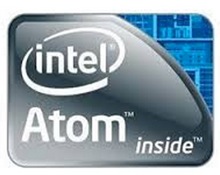How Intel could give Windows 8 the break it has been waiting for


I think that it's fair to say that Windows 8 hasn't been the rip-roaring success that Microsoft had hoped it would be. All data seems to suggest that it hasn't jump-started the stalling PC industry. But that could all change, thanks to Intel.
The chip giant is planning to work with hardware makers and Microsoft to bring to market cheap, touch-enabled Windows 8 notebooks powered by the company's upcoming Bay Trail Atom silicon.
CEO Paul Otellini hopes that "touch-enabled, Intel-based notebooks that are ultrathin and light using non-core processors" could come to market "as low as $200, probably".
And it's not just the cheap end of the market that Intel is interested in. Otellini also sees devices that offer "really good performance" that are going to be "hitting, kind of, $300 price points".
One of the biggest hurdles facing Windows 8 is price. The economy is tight, people are taking a closer look at price tags and coming to the conclusion that Windows hardware is not cheap. This is especially so when they are compared to Android powered tablets.
Part of this is the cost of the hardware — PC-based hardware is not cheap — and then on top of that is the cost of a Windows 8 license — which is also not cheap.
Will netbooks live or die?
While it seems that Microsoft is reluctant to start cutting the price of Windows licenses, this means that it is down to the hardware makers to find ways to slash prices. And given the dire predictions being made in relation to the industry, they have no choice but to try something.
While hardware makers are not going to be thrilled about having to cut prices again — a big part of the problem with the PC industry is that the big name OEMs, such as Dell and HP, devalued PCs to the point where it became hard for companies to turn a profit from selling them — consumers will be thrilled.
In my experience, consumers care very little about MHz, GHz, and so on when it comes to PCs, and instead focus on price. New Windows-powered devices, such as tablets, ultrabooks, and convertibles, don't seem to have done much to reinvigorate sales, but cheaper hardware may be the secret sauce that Windows 8 has been waiting for.
However, in the long run, this isn't going to have a huge, long-term effect on PCs. The era of the PC is over; we are moving into an era dominated by post-PC devices such as smartphones and tablets. The best we can hope from this is a short-term blip in a chart that is otherwise heading south.